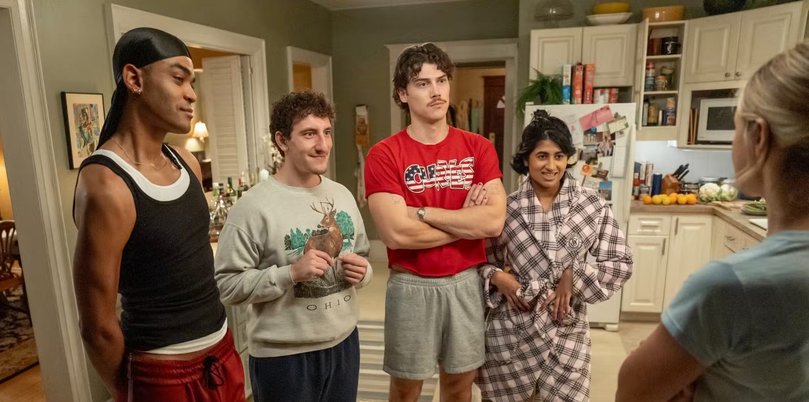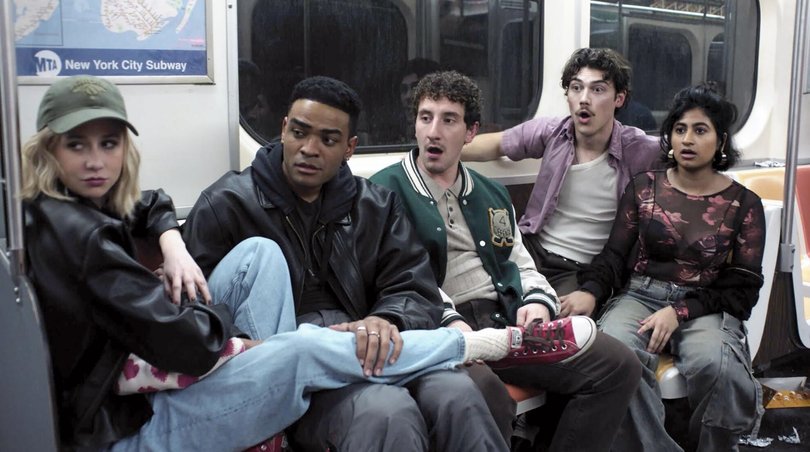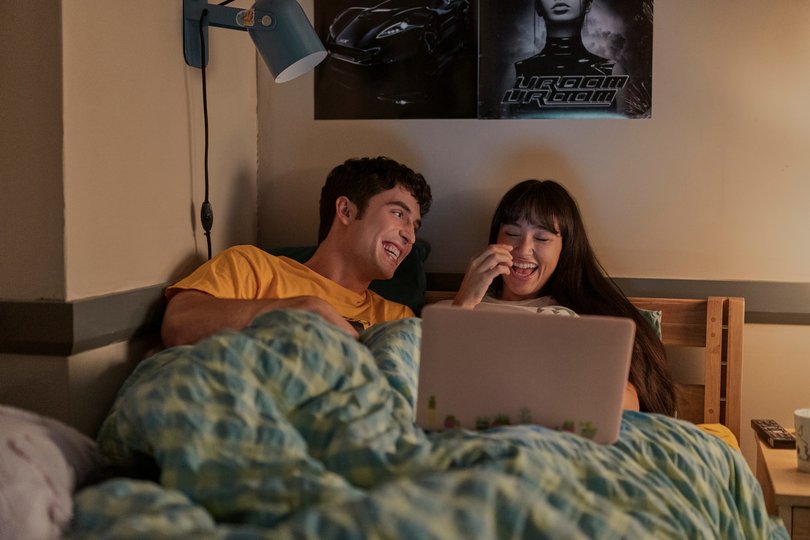Adults and Overcompensating: The kids are mostly OK in Gen Z comedies
Overcompensating and Adults landed within days of each other and while they both show the chaos of youth culture, they’re also kind of optimistic.

Every generation gets their hang-out sitcom.
Baby Boomers had Taxi and Cheers, Gen X had Friends and How I Met Your Mother, Millennials delighted in New Girl, Happy Endings and Girls.
In the past month, two Gen Z sitcoms arrived within days of each other – Adults and Overcompensating, and they, in theory, reflect the current moment of youth culture. Are the kids OK? Yes and no.
Sign up to The Nightly's newsletters.
Get the first look at the digital newspaper, curated daily stories and breaking headlines delivered to your inbox.
By continuing you agree to our Terms and Privacy Policy.Let’s take Adults first. The eight-episode first season, on Disney+, is about five friends – Samir (Malik Rahman), Billie (Lucy Freyer), Paul Baker (Jack Innanen), Issa (Amita Rao) and Anton (Owen Thiele) – who live in Malik’s family home. His parents seem to be on some extended holiday.
They don’t seem to do all that much, except hang out and get into all kinds of strange shenanigans. It’s bawdy, frenetic and often full-on cringe. At one point, Lucy starts hooking up with her former high school teacher (Charlie Cox, really going for it) who gets unhinged while on a ketamine high during a failed dinner party.

The charismatic and social Anton makes friends with everyone, including a neighbourhood stabber, while a scheme trying to marry off the Canadian Paul Baker is a comedy of errors. A subway masturbator meets his match in Issa, and an attempt to offload a gun is met with near-disaster.
It’s good for awkward laughs but there is something here about the precarious lives of twentysomethings trying to find their footing in a world that is far from accommodating. While none of them seem on the verge of destitution, they are still living rent-free in someone else’s house, and not in the happening heart of New York City but in the suburban outer-borough of Queens.
Lucy is fired from a crappy media job which offered her no health insurance and Malik is also unemployed. Compare that to the characters in New Girl, who not only had jobs, but also, for the most part, careers.
In Friends, the core six lived in and around Greenwich Village, an expensive part of Manhattan, even though it was well established that Rachel, Phoebe and Joey weren’t exactly gainfully employed. How things have changed in 30 years (at least on TV).

Overcompensating, on Prime Video, is a more complex case. It’s set at an American university and centred on Benny (Benito Skinner), a closeted gay guy who thinks he has to project a certain kind of heteronormative masculinity – frat boy, business major, sexed up, beer – lest anyone discover his secret.
He meets Carmen (Wally Baram), another student who is also trying to gain a sense of self after she moulded her personality to her now-dead brother, and the messy development of their friendship is a beautiful thing to watch.
The show is very funny and smart, and also features a raft of guest stars more familiar to viewers over 30, including Kyle MacLachlan, Connie Britton, Megan Fox, Charli XCX (who’s also a producer), Bowen Yang, Matt Rogers and even Didi Conn (of Grease fame).
Overcompensating is a stickier representation of youth in 2025 because Skinner and his cast are strictly in the Millennial bracket, and many of the cultural references belong to people who came of age 10 years ago (Glee, Britney Spears, Twilight), although the technology in the show’s universe suggests it’s set in the present day.

But what does feel urgent is the complexity and challenges of dealing with gender performativity, queer identity and pushing against expectations of not just other people but yourself.
This is what separates Overcompensating and Adults from its predecessors.
Their compatriots such as Sex Education and Sex Lives of College Girls are equally thoughtful and matter-of-fact about these knotty questions. They’re more introspective than the more simplistic preoccupations of Ross Geller or Ted Mosby.
Reflecting 2020s youth culture is about more than throwing token LGBTQI or non-binary characters into the mix, casually mention that work and cost-of-living is precarious, or spinning the right music hits.
It’s an attitude, one that’s considered amid the chaos. They might be lost, but at least they’re thinking about it.
Adults is streaming on Disney+ and Overcompensating is on Prime Video

